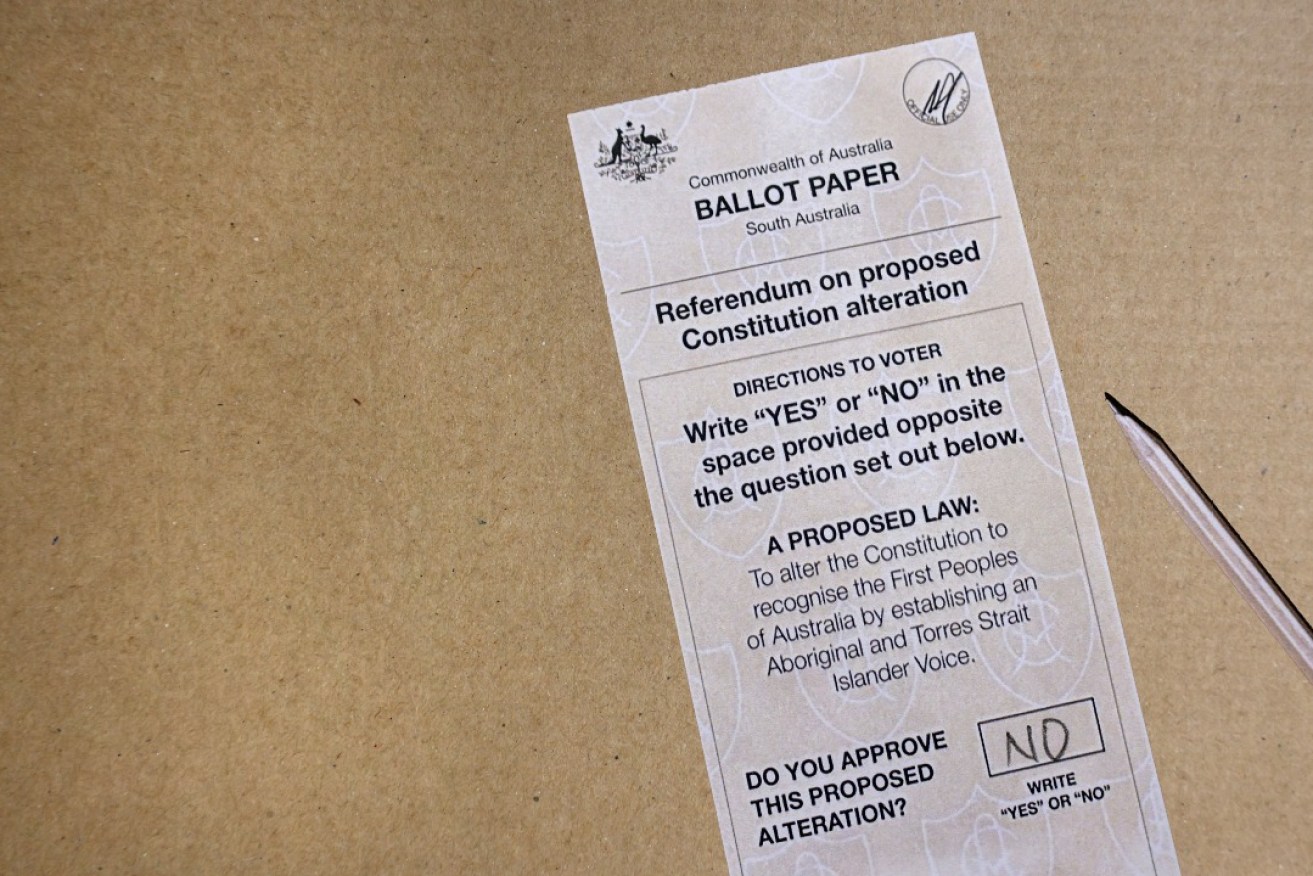Change the way we manage constitutional change
“No” won because of constitutional constipation, writes David Winderlich, not a lack of love, so finding a new way to change as a nation is the only way forward.

Noel Pearson’s description of Indigenous Australians as “a much unloved people” would have cut deep on Saturday night when Australia said “no”. But the voice was not rejected for want of love.
The recognition of Aboriginal and Torres Strait Islander Peoples referendum was rejected because Australia never expresses love or defends and extends rights through our constitution. It’s weird, but we do that through our parliaments and courts.
Our constitutional referendums are terminally constipated – almost nothing passes through them. If we want to change the constitution, we will have to change the way we manage referendums.
Proponents of Yes castigate No voters for not bothering to find out what was being proposed for the voice. However, they haven’t taken the time themselves (10 minutes on the Australian Parliament House website would be enough) to find out how referendums work in Australia.
It’s simple. We just say No!
Only eight of 45 referendums have passed since Federation. As success requires the support of a majority of voters in a majority of states, this is not surprising.
Even modest changes tend to be overwhelmingly rejected.
Proposals to ensure states protected trial by jury, freedom of religion, and provided just compensation for the acquisition of property were all rejected by 70 per cent of the electorate. So was a proposal for four-year terms for the federal parliament.
Only 33 per cent of voters supported constitutional recognition of local government, and 55 per cent of Australians said “no” to the idea that we should not have another country’s monarch as our head of state.
All these referendums concerned proposals that would apply to all Australians equally, unlike the voice which seeks to provide a specific racial group with the additional minor privilege of a formal advisory body. And they still lost.
“No” doesn’t necessarily mean No. At least not forever. It means not now. Not here. Not like this. Especially if we don’t all agree.
It seems strange but most of our acts of love, such as anti-discrimination legislation, multiculturalism, the deeply flawed NDIS, Medicare, land rights, apologies to the Stolen Generations and the Mabo decision, emerge from our parliament and our courts. They are the product of a fiery, messy, tango, or Bavarian slap dance, rather than a slow romantic waltz. But love is love.
In the short term, Australia must continue to look to our parliaments and courts to improve the lives of Indigenous Australians.
There is some progress.
Several state parliaments are working on treaties and advisory bodies. There could be more. Federal parliament could always legislate for a voice. Addressing the chronic lack of housing needs money, not a constitutional amendment.
But our creaky constitution is still stuck in the nineteenth century.
We can’t add a voice or anything else. For example, the NT and ACT which were created in 1911 still don’t count as states so they can’t be included in the states column.
The best way to make referendums workable is to minimise the role of politics and politicians. Imagine the quality of discussion of the voice without Dutton, or Albanese, or Mundine or Lydia Thorpe leading the debate.
One way to do that would be to establish a Constitutional Amendment Commission.
That body would research issues, decide when change was needed, run consultative mechanisms such as citizens juries and then, as required by the constitution, submit proposals to the parliament to pass an act pertinent to that referendum.
Changes to the electoral act could ensure all media outlets would provide time for discussion of the merits of the Yes and No cases. The referendum would be preceded by a year of town hall meetings and discussions by nonpartisan experts and community representatives.
A panel of independent experts and community representatives would fact check any claims made about the proposition being put and all media would be required by law to publish the results of their fact checking. Advertisements must include a notice directing viewers and readers to the independent fact checks.
Impossible? All it takes is legislation, just like the legislation which created the Australian Electoral Commission which runs our elections and referendums. It is also how we regulate gambling ads.
The best thing we can do for reconciliation in the aftermath of an often-bitter campaign to keep things in perspective. Australia did not reject Indigenous people on Saturday, just like we didn’t reject trial by jury or local government. We just voted No.
I wrote earlier that we never defend rights through constitutional referendums. There is one exception. In 1951 Australia defended the right of Australians to form and join the Communist Party. How did we do that? We rejected a proposed change to the constitution. We voted No. That’s how we roll.
David Winderlich was briefly a Member of the Legislative Council but has also been a small business owner, public servant and community sector manager. David voted Yes and volunteered for the campaign.




